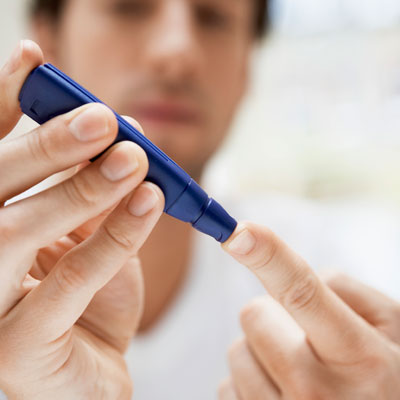Canadian health and care mall: diabetes medications
ALCOHOL
My partner has just been changed from tablets to insulin for his diabetes. He has been told that if he drinks alcohol, his blood sugar may go low. We had always thought that beer caused the blood sugar to rise. What should he do when he next goes out with his friends? 
It is certainly true that beer can cause an initial rise in the blood glucose since it contains a lot of carbohydrate. However, alcohol itself has a direct effect on the liver which prevents it from releasing glucose when the blood glucose falls. This usually happens several hours later and may result in a hypo the following morning.
The overall effect of a particular alcoholic drink depends on the proportion of alcohol to carbohydrate. For instance, lemonade shandy (high carbohydrate, low alcohol) will have a different effect on the blood glucose from vodka and diet tonic (low carbohydrate, high alcohol). ‘Diabetic’ lager is more likely than ordinary beer to cause a hypo because it contains less carbohydrate but more alcohol.
To counteract the glucose-lowering effect of alcohol, it may be sensible for your partner to eat a sandwich or cereal and milk to provide extra carbohydrate before going to bed. He may also need to reduce his pre-breakfast insulin.
I believe that it is dangerous to drink alcohol if certain tablets are being taken. Does this apply to tablets used in diabetes?
In general, no. However, alcohol may alter the response to a hypo (this has been discussed in the previous question) and some tablets used for diabetes can cause hypos. The most widely used are sulphonylureas. If you are taking a sulphonylurea and are going to drink alcohol, you should be aware of the possibility of a hypo. In practice this is very uncommon.
I’ve heard that there is evidence that a moderate amount of alcohol is part of a healthy diet, and that it reduces the risk of heart disease and strokes. My dietitian made me cut down my alcohol intake to one glass of wine a day, which is much less than I used to drink. What should I do?
Recent research shows that alcohol in moderation reduces the risk of heart attacks, strokes and premature death in people with diabetes (or without); indeed the effects may be even more impressive in people with diabetes. Our view is that moderate alcohol intake (up to a maximum of half a bottle of wine a day, or equivalent) should be encouraged, but within a calorie-regulated diet, if you are overweight.





0 Comments
You can be the first one to leave a comment.